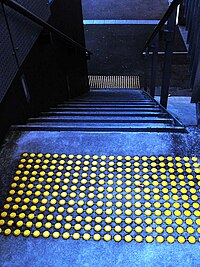
More vection means more velocity storage activity: a factor in visually induced motion sickness?
Sign Up to like & getrecommendations! Published in 2018 at "Experimental Brain Research"
DOI: 10.1007/s00221-018-5340-1
Abstract: Full-field visual rotation around the vertical axis induces a sense of self-motion (vection), optokinetic nystagmus (OKN), and, eventually, also motion sickness (MS). If the lights are then suddenly switched off, optokinetic afternystagmus (OKAN) occurs. This… read more here.
Keywords: motion; velocity storage; vection; motion sickness ... See more keywords

Inducing circular vection with tactile stimulation encircling the waist.
Sign Up to like & getrecommendations! Published in 2018 at "Acta psychologica"
DOI: 10.1016/j.actpsy.2017.11.007
Abstract: In general, moving sensory stimuli (visual and auditory) can induce illusory sensations of self-motion (i.e. vection) in the direction opposite of the sensory stimulation. The aim of the current study was to examine whether tactile… read more here.
Keywords: circular vection; stimulation encircling; stimulation; vection ... See more keywords

Allocating less attention to central vision during vection is correlated with less motion sickness
Sign Up to like & getrecommendations! Published in 2018 at "Ergonomics"
DOI: 10.1080/00140139.2018.1427805
Abstract: Abstract Visually induced motion sickness (VIMS) is a common discomfort response associated with vection-provoking stimuli. It has been suggested that susceptibility to VIMS depends on the ability to regulate visual performance during vection. To test… read more here.
Keywords: motion; allocating less; vection; attention ... See more keywords

A virtual reality study investigating the train illusion
Sign Up to like & getrecommendations! Published in 2023 at "Royal Society Open Science"
DOI: 10.1098/rsos.221622
Abstract: The feeling of self-movement that occurs in the absence of physical motion is often referred to as vection, which is commonly exemplified using the train illusion analogy (TIA). Limited research exists on whether the TIA… read more here.
Keywords: optic flow; train illusion; tia; vection ... See more keywords

The Shepard-Risset Glissando: Identifying the Origins of Metaphorical Auditory Vection and Motion Sickness.
Sign Up to like & getrecommendations! Published in 2019 at "Multisensory research"
DOI: 10.1163/22134808-20191450
Abstract: We recently showed that auditory illusions of self-motion can be induced in the absence of physically accurate spatial cues (Mursic et al., 2017). The current study was aimed at identifying which features of this auditory… read more here.
Keywords: motion; vection; shepard risset; sickness ... See more keywords

Something in the Sway: Effects of the Shepard-Risset Glissando on Postural Activity and Vection.
Sign Up to like & getrecommendations! Published in 2022 at "Multisensory research"
DOI: 10.1163/22134808-bja10081
Abstract: This study investigated claims of disrupted equilibrium when listening to the Shepard-Risset glissando (which creates an auditory illusion of perpetually ascending/descending pitch). During each trial, 23 participants stood quietly on a force plate for 90 s… read more here.
Keywords: sway effects; shepard risset; effects shepard; risset glissando ... See more keywords

Prior Exposure to Dynamic Visual Displays Reduces Vection Onset Latency.
Sign Up to like & getrecommendations! Published in 2022 at "Multisensory research"
DOI: 10.1163/22134808-bja10084
Abstract: While compelling illusions of self-motion (vection) can be induced purely by visual motion, they are rarely experienced immediately. This vection onset latency is thought to represent the time required to resolve sensory conflicts between the… read more here.
Keywords: motion; priming displays; vection; vection onset ... See more keywords

Enhanced vection in older adults: Evidence for age-related effects in multisensory vection experiences
Sign Up to like & getrecommendations! Published in 2022 at "Perception"
DOI: 10.1177/03010066221113770
Abstract: The illusion of self-motion (vection) is a multisensory phenomenon elicited by visual, auditory, tactile, or other sensory cues. Aging is often associated with changes in sensory acuity, visual motion perception, and multisensory integration, processes which… read more here.
Keywords: older adults; age related; auditory tactile; vection ... See more keywords

Caloric vestibular stimulation induces vestibular circular vection even with a conflicting visual display presented in a virtual reality headset
Sign Up to like & getrecommendations! Published in 2023 at "i-Perception"
DOI: 10.1177/20416695231168093
Abstract: This study explored visual-vestibular sensory integration when the vestibular system receives self-motion information using caloric irrigation. The objectives of this study were to (1) determine if measurable vestibular circular vection can be induced in healthy… read more here.
Keywords: vestibular stimulation; vestibular circular; caloric vestibular; vection ... See more keywords